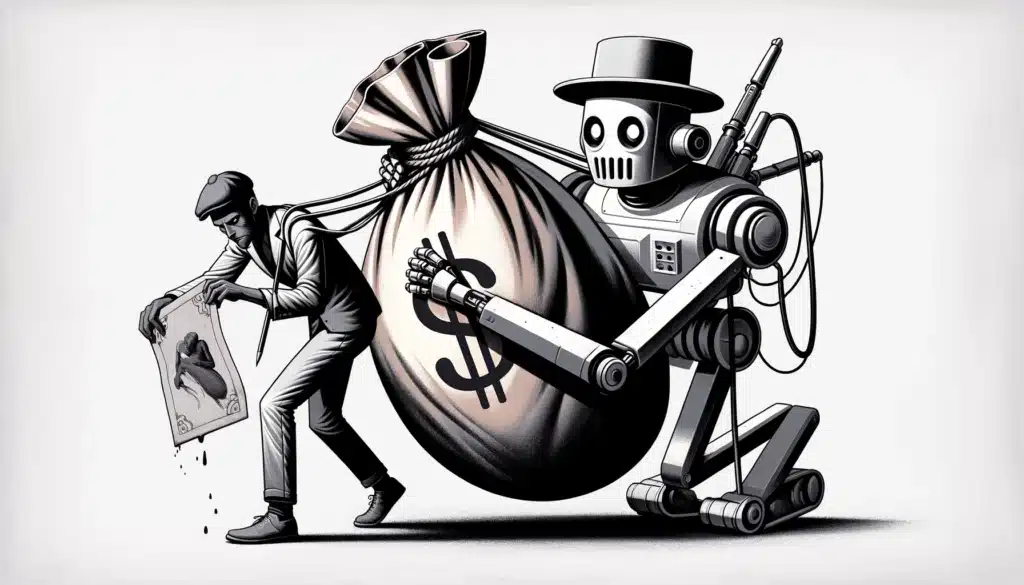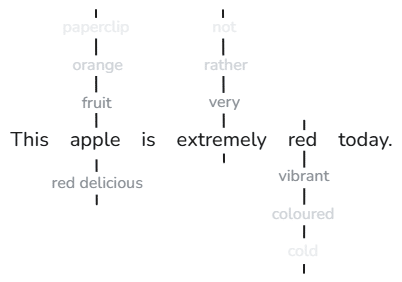Introduction: How A WordPress Plugin Makes My Writing Worse
I used to host my website on a platform called Squarespace. It’s a all-encompassing online platform/tool for developing and hosting content on the web.
You pay an above average monthly rate in exchange for having someone else take care of all the hard work of making a website function – all you do is design inside their very fixed and rigid playground, and tada, you have a website.
Their service used to be quite underwhelming. When I first started dipping my toe into making websites for clients, friends and family, I picked Squarespace on a number of projects for its simplicity. I valued the ability to just trust the platform – to have all the nuances handled for me.
But unfortunately, I began to hit limits. I found myself fairly unsatisfied by the lack of flexibility in the Squarespace interface, and noticed a number of things I wanted to do were either arbitrarily difficult or straight up impossible.
As my talents and experience grew, my desire for more control over my websites grew also. I wanted to micromanage every detail of the process, from the aesthetic choices to the code that nobody will ever see – but that I’ll know is there.
Whether these details have any impact on the final product is debatable, but most of us website designers know that our value lies in the nuance, in our ability to stand out from the crowd either aesthetically or technically.
At one stage, I decided enough was enough. I had hit a wall with Squarespace, and whilst the workflow of write content > publish content > go to sleep was quite satisfactory, I wanted to build a new foundation – at least for my own website.
So I migrated away from Squarespace to WordPress. I lost about 70% of my daily impressions from Google Search in the process and am still trying to a) recover that traffic and b) decide if it was worth it.
That kind of dip is (relatively) normal in website migrations, especially when you go from making so few of the decisions about a project to all of the decisions. My subsequent sites and migrations fared much better. As always, we are our own test subjects.
WordPress & Infinite Possibility
WordPress, unlike Squarespace, considers website creation something of a hands off concept. Where Squarespace is a service that limits your options to the superficial, giving you the illusion of choice in what is actually a fairly on-rails design environment, WordPress is as barebones as you can get without coding the entire website yourself.
I had all the choice I could desire. I picked colours, fonts, shapes, page layouts, themes, plugins, tech stacks, image formats, analytics extensions, functionality, commerce solutions, SEO compatibility all by myself. It was fantastic.
Until I looked at the date on my last article. It had been almost three months since I’d published anything. My organic traffic had ground to a halt. Google had seen everything I had to offer and was pretty convinced my newly developed passion project was nothing more than a fresh coat of paint. It wasn’t wrong.
In deciding every piece of my site (and brand’s) puzzle for myself, I’d made a great number of choices. Some were good, some were bad, but most of them were frustratingly unreviewable.
With Squarespace, I knew that many of the frameworks I was locked into were not optimal – because the example was right there in front of me. With WordPress, I had no such example to critique – I had all the possibility in the world to try and make sense of.
If you’ve never made a website yourself, it’s difficult to explain exactly how distinctly different these two platforms are from one another.
The best analogy I can find is that it’s like building a car from scratch, but with some amount of background information. With Squarespace, you are given a 2002 Toyota to tinker with, and a handful of different coloured exhaust pipes and various headlight globes. Nobody is saying that the thing won’t drive, and you might even get through a road trip or two, but it’s not exactly original.
On the other hand, WordPress is like being given every option for every part that ever went on any car, ever, and some guy showing up at the workshop and just saying: ‘figure it out‘.
Working in marketing, I have some idea of how to build cars (read, websites) for myself and others. But I’m also very prone to shiny object syndrome. Some of the plugins you can install for a WordPress site narrow down your choices to only the most optimal, and allow you options you didn’t have before.
Marketing Plugins
One such type of these plugins is the SEO/organic search marketing plugin genre. If that all means nothing to you, congratulations, you’re probably sane and (relatively) mentally sound.
The SEO (or Search Engine Optimization) industry is entirely built around following Google around obsessively for any scrap of information regarding how they construct their search engine rankings, and then painstakingly designing their entire marketing & content strategy around whatever they interpreted for the next 6 months, until the next update turns the entire industry on its head again.
It’s a thankless field where the only way to proceed as a professional is to guess and pray to God you’re right. If you win, you gain organic traffic, and you never know for certain if what you did actually gained you that traffic, or if you just got luckily blessed by Old Man Google. Such is the joy of working in the constraints of impossibly big tech conglomerates.
So, within that field, there are plugins for WordPress websites (still with me?) that analyse the content of a page or article, such as this one, and tell me exactly what I’m doing right or wrong. For example, the image you’re about to see below this paragraph was only included so that the plugin would stop yelling at me to include more images.

How meta, right?
But, the more prevalent component of these plugins, at least for the purposes of this article, is the target keyword section:

^ That image was actually because it seemed sensible to include. The machines don’t make ALL my decisions for me…
You must specify what keyword you’re looking to target for any of the plugin’s functions to operate as intended. If you don’t pick a keyword (think the things you’d type into Google, like “best toaster for people with social anxiety 2024“, or “why is God dead and did we kill him?”)
Once you’ve done that, you get to be judged by a robot on how likely your content is to rank for that particular topic. For example, the robot is telling me that I have a downright horrible chance of ranking for my desired search term: “I scream but do not have a mouth”.

27/100. Silly writer.
Finally, to the point…
I have published relatively few articles since that point, the advent of this newly minted website and many of these fancy plugins. Much of my time has been focused on the technical, the behind the scenes aspects that contribute to your chances in the Google-based lottery.
Whilst I believe that my skills as a writer have improved, I don’t know that I can say the quality of the articles I publish has improved also. Part of that has to do with writing for a godforsaken robot.
When I looked at why moving to a new website platform caused my readership and viewership to fall off a cliff, I found that two of my articles contributed to 85% of my Google Search results. These were articles I wrote before the migration – before I started writing to appease the plugin that supposedly gave me better odds at ranking in Google.
Somewhat ironic, no?
In fact, by all standards, they were pretty crappy articles. They had few pictures, a lack of narrative, and to be honest, even by my standards, didn’t do a fantastic job at teaching the things they were supposed to teach.
These articles are still some of my most viewed, to this day.
Despite not being written to Google’s technical standards, despite not being my magnum opus’ (opuses? opusii?), they still received the highest vote of confidence a piece of work can receive. Actual readers.
And more importantly, they marked the difference between writing something I wanted to write and something a robot told me it liked reading.
I didn’t pick the topics for those articles (Goal-oriented thinking and Plausible Deniability, in case you were curious), because I thought there were people absolutely clamouring for the information, even though there apparently were.
I wrote them because I wanted to share the information in my head with other people. I wanted to be… creative…*
Therein lies the problem with plugins that ask for a target keyword. They presuppose that an article, an expression of information or emotion or creative intent, can be distilled down into a single search term, and gamify the idea until it seems foolish not to act in line with that imperative.
I have had the most fun writing this article in some time. Not least because of the amount of wine consumed during the drafting process, but also because there was soul behind the composition. It was not conceived in a laboratory because a marketing AI told me there was a lot of search traffic for the term “Commodification” (hint, there isn’t).
I just wanted to get this shit off my chest.
Personal Brands & Getting Paid for your Work
I am painfully aware of the irony that this article will likely be one of the lesser viewed in my portfolio. It is self-serving, and appeals to the rather small niche of people that both understand marketing and web design terminology and also have a vested (if cynical and jaded) interest in personal branding and being paid for their creative work.
Quite the mouthful.
Having said that, I believe there is still a point to what I’m trying to express.
I have believed, for some time, that I should be striving towards commoditising myself. That is, developing my skills or knowledge or sheer force of personality into something valuable, something I can get paid actual money for on a consistent basis.
I have wanted to work for myself as long as I can remember, and finding a way to monetise my passion has been a no-brainer. The non-challenged preconceived notion – to be ‘a writer’ or ‘a marketer’ or any other label I would care to slap upon myself, I must do it for my one and only vocation.
A professional is someone that engages in a task or exercise as a source of income.
And indeed, it’s not enough to just be ‘a writer’. I must be ‘Cain Parish – relationship expert’, with a whole host of background and experience and marketable qualities that set me apart from the pack.
Indeed, people are so desperate to become a personal brand, a man named Simon changed his name to Siimon – just to stand out from other job applicants in a competitive field. Look it up.
I must create not just for the sake of expressing things unique to my perspective or on my timeline. I must create because the almighty algorithms dictate that if I do not, my account must be awarded a penalty for inconsistency.
Unrealistic Expectations
So what is the bait and switch here? Am I to show my ire at capitalism for creating such a competitive environment that I cannot merely spew words onto a page and receive my Universal Basic Income™? Should I Rage Against The System that rewards an ability to play the game more than it does positive intentions and good vibes?
It’s hard to commit to that point of view. I don’t think I can muster any sort of anger against the social media conglomerates and advertising mega-agencies that make it profitable to be the sellout of all sellouts. The fact that I cannot bring myself to enjoy the hamster wheel of robot article analysis and Instagram engagement metrics doesn’t mean the system is wrong.
It means that I’m wrong for the system.
To play the game of capitalism – to expect material success – I cannot both try and participate in a system which so transparently rewards pandering to its core metrics and also opt out of those same concepts.
I hate social media with a passion. I cannot then get annoyed that my Instagram following has been below two thousand for the better part of three years.
We either play the game or we don’t. I am quite sick to death of trying to opt out and also expecting to find success from the same things I have disavowed.
It is an unrealistic expectation to think my primary source of income can come from a nameless, faceless platform that I am constantly fighting myself to even participate in.
I will never be Kendal Jenner. My face is not worth a fraction of what hers is as a motivational factor to sell PepsiCo products. But I never have to deal with the opportunity costs of being in those ads.
So, what do I do as a creative?
I’m not going to put schema (Google robot friendly code that helps Google understand the context) on this article. I cannot see that being worthwhile.
My target keyword only appears once in this article, where I quoted it above to take the piss out of the plugins that I use to ensure I’m search engine friendly. If you don’t know marketing metrics, for a nearly three thousand word article, one instance of a keyword f*cking sucks.
I suspect we’d see a lot more creativity and freedom of expression if we lived in a utopia where material currency wasn’t a driving force behind creativity. I still care about the values behind this website, and the reasons behind writing everything I’ve written.
Unfortunately, all of that virtuous production is tainted by the hard-to-ignore sentiment that I could sell my soul for a tidy profit. I could turn on ads on the site. I could push more affiliate products. I could sell predatory courses for $1997, because some douche with a Psych minor decided that $1997 was somehow the sweet spot between compliance and compromising on how much money you could make.
I just want to write. I don’t want to post on Instagram. I don’t want to make TikToks. I like speaking – the way I do now – asynchronously and without chance of interruption.
Unfortunately, by sticking to my principles, I’m also (for the most part) conceding my ability to make money at this gig.
Most creatives will inevitably have to face that decision. Do I sell out to the algorithms or do I commit to doing what I love because I love it?
I truly don’t know whether to pursue material gain or creative expression. I suppose it depends what my goals are – to find creative outlets or make that moolah doing something slightly more palatable than selling booze to complete strangers whilst being micromanaged by a 4’11 psychopath. (don’t work at a bar, kids)
I moved from Squarespace because I thought it would lead to more readers = more money. It harmed my creative output in the process.
God forbid a man install a WordPress plugin, amirite?




